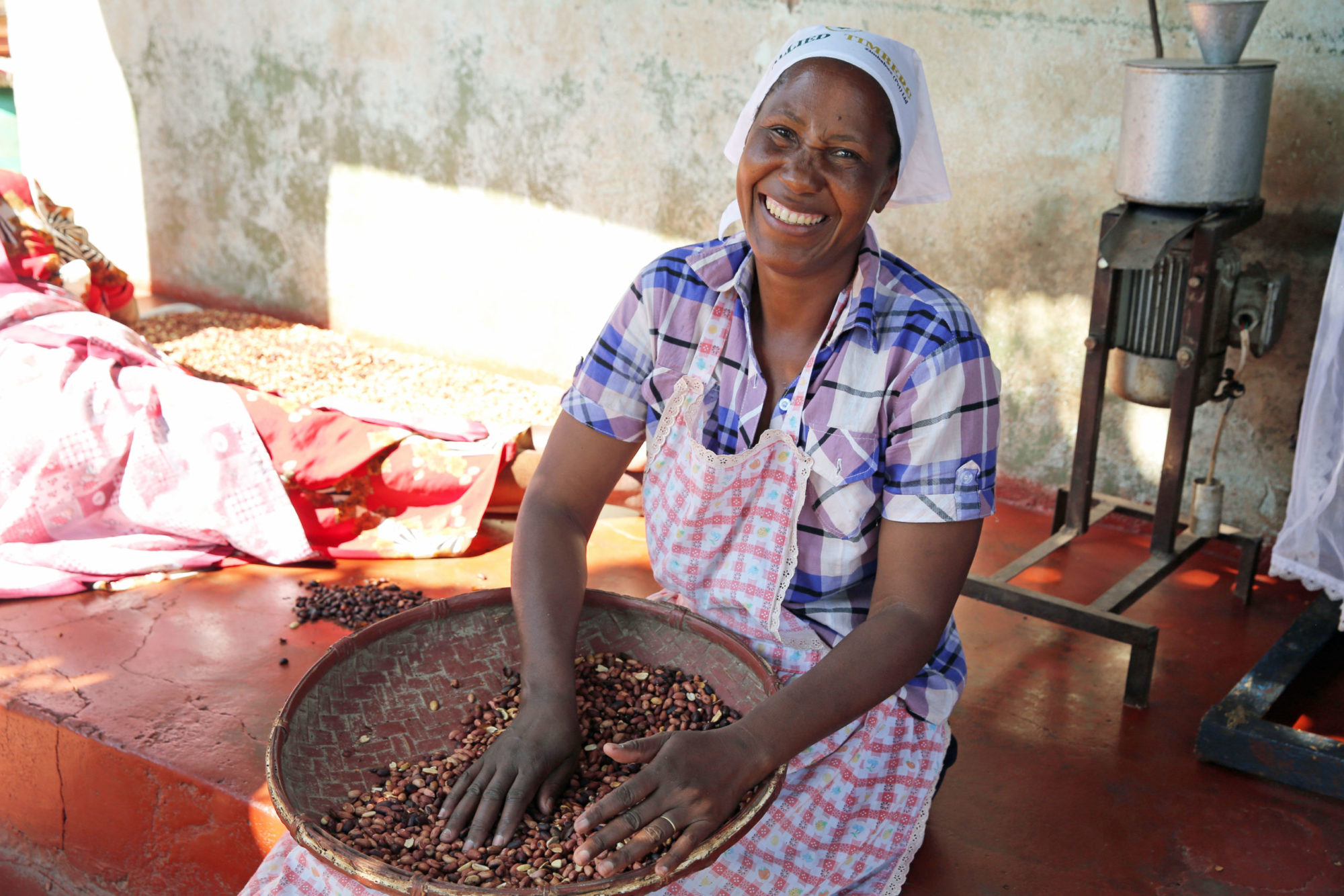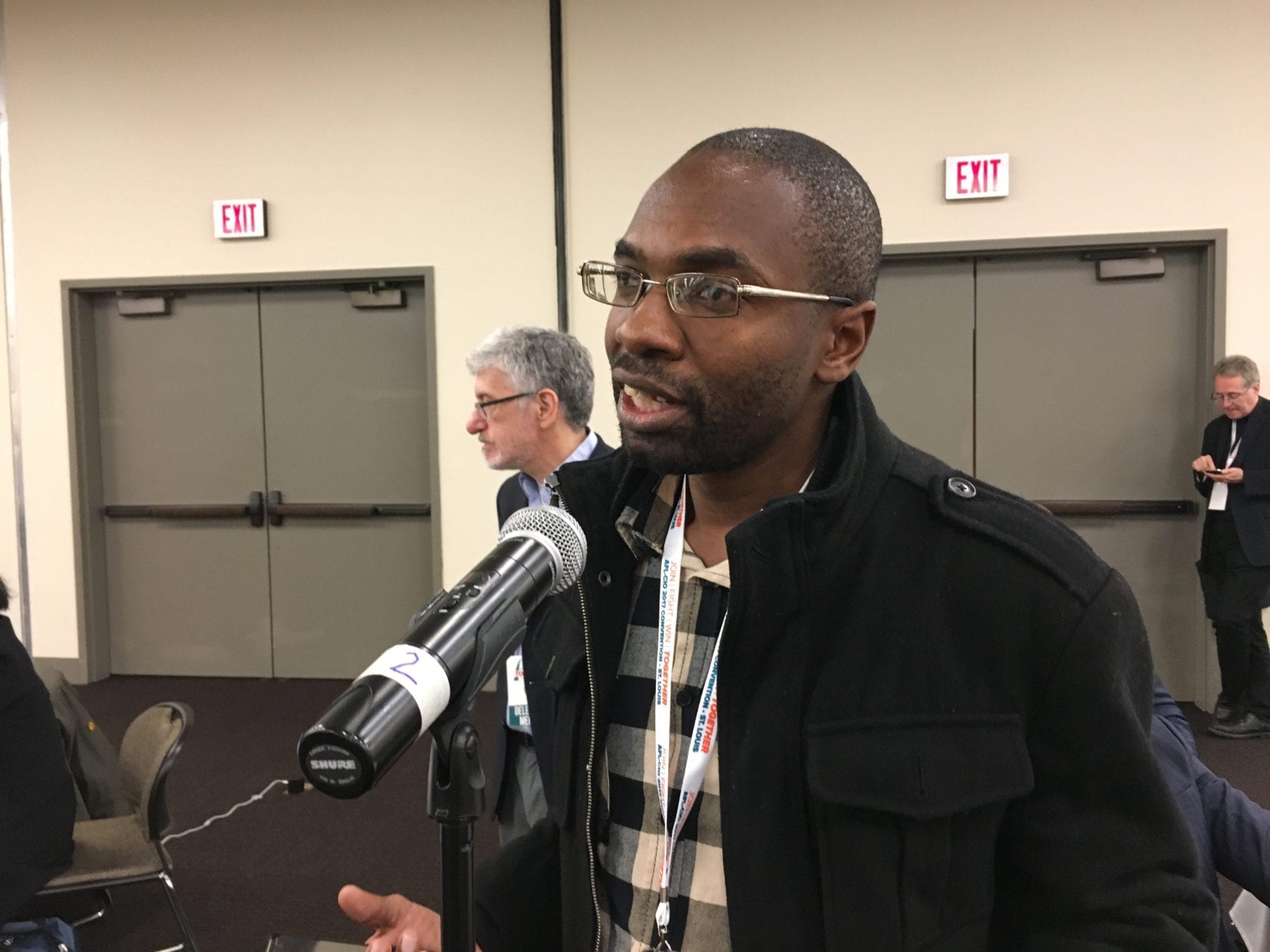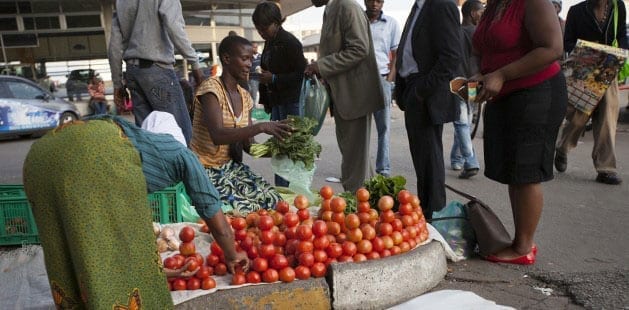Hundreds of women in western Zimbabwe who have waged a week-long sit-in at Hwange Colliery Co. Ltd. (HCCL), demanding unpaid wages for their husbands who labor in the company’s coal mines, say they are set to march to tourist-packed Victoria Falls. There, says the...

In Zimbabwe, the Solidarity Center supports training to educate and mobilize working women, who comprise the majority of economically-struggling workers in the informal sector. Credit: Solidarity Center/Jemal Countess
Economy in Crisis: Jobs in Zimbabwe ‘Aren’t Paying’
In Zimbabwe, “there is no economy to talk about in the moment,” says Peter Mutasa, president of the Zimbabwe Congress of Trade Unions (ZCTU), a Solidarity Center ally. “Everyone is living on subsistence and selling in the streets. Those jobs are not paying. They don’t...
Zimbabwe Vendor Ban Targets Vulnerable Workers
The government in Zimbabwe is moving to ban market vendors in Harare at a time when more than 90 percent of the workforce labors in the informal economy and 85 percent or more Zimbabweans are seeking decent work. “People who are into street vending are not into it for...



